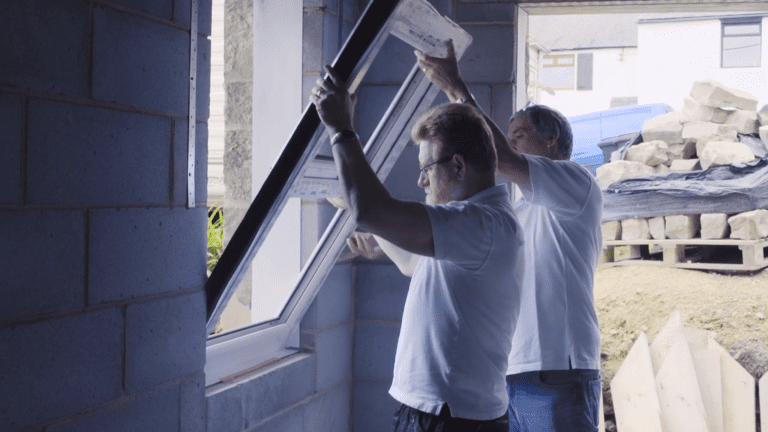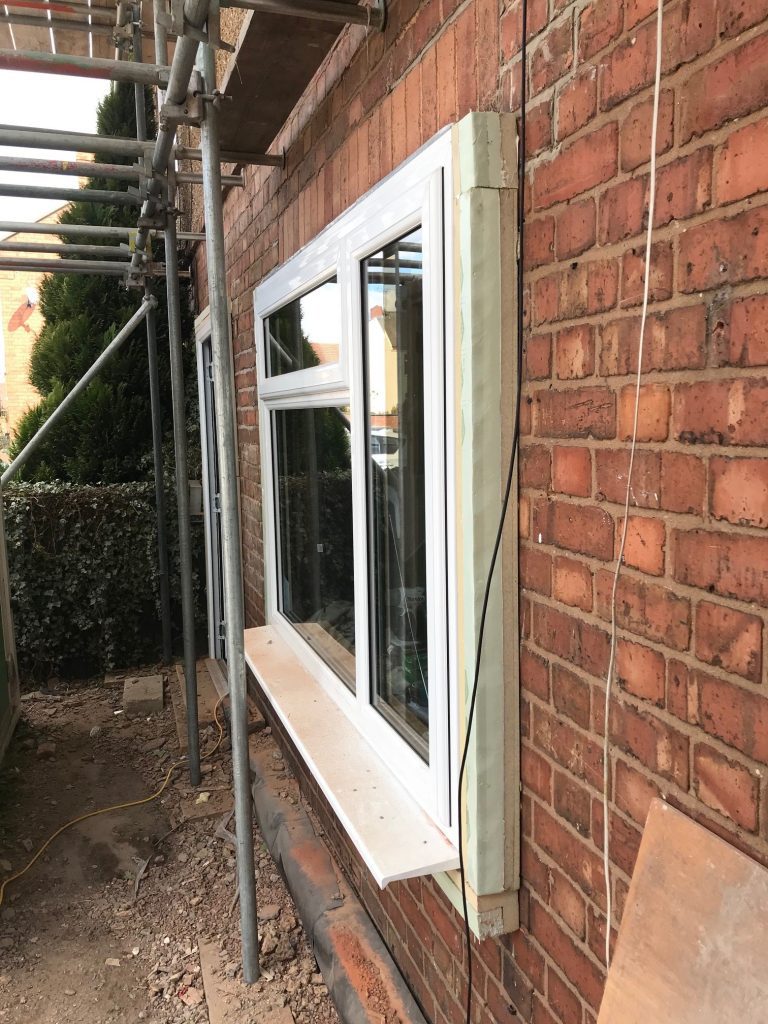Andy Swift, sales and operations manager for ISO-Chemie, says changes to Part L of the building regulations will see housebuilders increasingly consider alternative ways to improve airtightness as energy ratings for buildings and property are tightened. Changes to Part L of the Building Regulations, which come into effect December 2021, are part of the Government’s national drive to see all new homes from 2025 deliver a 75% saving on carbon emissions when measured against current standards. In particular, Part L sees the provision for stricter standards and compliance procedures around energy and ventilation performance, laying out a roadmap to a net zero carbon future and new homes designed and built in-line with stricter carbon emissions targets. However, despite great strides in housing design and development, evidence continues to point to doors and windows as being the biggest culprits when it comes to the nation’s chronic energy inefficient homes. Indeed, it might be said that in the light of product innovation, its almost ‘criminal’ that the hundreds of thousands of new or retrofit installations completed each year remain unchecked or unregulated. This will leave a legacy of problems for years to come and cost millions of pounds to rectify. This is a pity because with advancements in cost effective, easy-to-use technologies, there should never be any justifiable reason for delaying or avoiding the specification of better energy efficient window and door sealing solutions. Right direction In this respect, the changes to Part L have to be seen as a step in the right direction for the fenestration sector. It will see requirements for improvements in air tightness, forcing them from 10 air changes per hour down to 8 air changes per hour and also U value on windows shifting from 1.6 to 1.2wm2 k/H, which will require more energy efficient sealant solutions such as thermal foam tapes. Heat will always find the fastest exit as it comes up against the ‘A’ or ‘A+’ rated window, and invariably this emanates from the 10mm or so expansion gap left around the window following fitment. This is normally left empty, but some amount of spray foam can be injected to fill the void before a silicone trim is applied for a smart looking finish. Unfortunately, as expedient as this might seem, none of these solutions create a measurable, long term, high performance thermal, acoustic or airtight barrier – the U-Value of the installed window is simply reduced, which leads to heat escape and, ultimately, financial loss. That’s why the house building industry and wider construction sector deserves better insulating solutions to improve energy efficiencies, especially if as predicted, the UK market stays buoyant over the next 12 months as the economy continues to recover from the pandemic and building and construction activity remains busy, particular in the face of a chronic national housing shortage and the need to build more affordable housing. In modular construction, which is gaining increasing traction and will see continued integration with the more traditional methods of building in 2022, enabling developers to bring forward housing projects more expediently, designers and specifiers are looking at new ways to deliver low carbon structures, which use sustainable technologies to deliver measurable airtight, acoustic and thermal sealing benefits. And this is where self-adhesive foam sealing tapes can add real value, enabling developers to bring forward housing projects more expediently. They can use ‘smart’ foams impregnated with different substances to create a measurable U-Value as low as 0.6w/m2k, offer superb thermal insulation and can contribute to acoustic sound reduction by 63dB. As these installation tapes are completely weather tight against driving rain up to hurricane force wind speeds, installers can quickly apply them around the frame during initial fitting. This provides the assurance that they have completed a comprehensive ‘A’ rated installation rather than just supplying an ‘A’ rated window. This is a benefit that can be sold on to deliver enhanced energy efficiency advantages for customers and property owners. Fit for future Building regulation changes will have an unequivocal impact as energy ratings for buildings and property become stricter, and these include energy and ventilation standards for residential and non-domestic buildings that are far better for the environment and fit for the future – higher air and thermal standards for house construction has to be a priority. Technical innovation through sealing technologies is one way that those responsible for fenestration specification can do more to support greater energy efficiency and mee the requirements of Part L. Indeed, as sustainability continues to be of paramount concern in the development of low carbon and eco-friendly building projects, we will see technologies such as energy foam tapes, which can add real value during the initial and post construction phases, only grow in importance as the most effective solutions for sealing window and door frame expansion joints and gaps in houses. Today, there are effective products out there to ensure that airtightness and thermal efficiency within buildings should never be overlooked or ignored – it’s simply a matter of designing in these products. More at https://www.iso-chemie.eu/en-GB/home/







